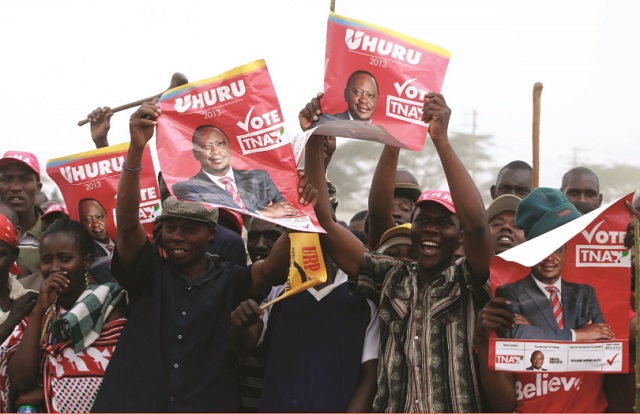
Mixed results
At the national level, Kenyans seem to have repeated a monotonous script that suggests a resistance to learning from past mistakes.
At the micro level, the results were mixed, delivering both positive and negative outcomes. Promising candidates such as social-justice activist Boniface Mwangi, who campaigned on a platform of ethics and integrity, failed to make the cut. But others, like Anne Waiguru, a former cabinet secretary implicated in corruption and Professor Anyang Nyong’o, whose nomination was contested in the primaries, pulled through.
On the positive side, three women made forays into governorships thus paving the way for more women to join the fray in future. And in some regions like Eastern Province, people resisted major political party dominance by re-electing individuals from minor parties, which is laudable.
At the same time, some regions such as Rift Valley province maintained their strong Jubilee Party leanings as seen in the punitive ouster of Isaac Ruto who ditched the Jubilee Party for his own Chama cha Mashinani.
These dynamics are suggestive of a palpable tension between progress and the status quo. It remains to be seen which will prevail.
Only one winner
Ultimately, there could only be one winner between the two presidential choices. President Kenyatta clinched a second term for obvious reasons. He is highly personable and seems to enjoy strong political chemistry with his supporters. He also boasts strong social media credentials – he skipped this year’s presidential debate, opting instead to directly engage his supporters on Facebook.
With the incumbency in his favour, he campaigned on the platform of his first term track record and projected the confidence to finish the job.
But there was also something more sinister that played in his favour. He has perfected the art of insulating himself from the controversies that have rocked his government. His deputy, William Ruto has been the shock absorber that has taken the flak over alleged links to various corruption scandals and political machinations.
The fact that Kenyatta has not been directly linked to corruption made him appear more trustworthy. Even though he has been sluggish in acting on graft and inefficiency, some of the minor cabinet shake-ups he stimulated seemed to have paid off.
Examples include Joseph ole Lenku’s exit as cabinet secretary for interior and the resignation of the former devolution cabinet secretary, Anne Waiguru, to pave way for corruption investigations.
These actions helped him retain his 2013 strongholds while giving the impression that he can also act tough.
On top of this, his loyalty to his deputy who has often been portrayed as the corrupt villain, enabled him retain a sizeable chunk of Ruto’s backyard – the Rift Valley voting bloc.
After securing a comfortable win, Kenyatta is no longer a political hostage who is constrained by the appeasement of first term allies. Does this mean that he’ll develop a firm hand to tackle some of the issues that have dogged his government? If he does, he might just turn out to be the political pill that the doctor ordered for Kenyans.
End of an era
Raila Odinga, Kenya’s veteran political stalwart, has a strong track record as a champion for political reforms, and is loved and disliked in equal measure. This is the fourth time he has vied for the presidency and lost even though questions persist over the disputed 2007 and 2013 election results.
Odinga lost the 2017 elections for two reasons. Some voters buckled under the weight of “Raila fatigue” and accompanying disillusionment. Both can be partly attributed to the fact that he has lost at every shot he’s made at the presidency.
Odinga missed the opportunity to exit the political stage at the apex of his political calling.
Granted, several other issues worked against him such as a weak internal party democracy, allegations of corruption and a disorganised campaign machine. That said, he should now consolidate his legacy by nurturing other leaders who are passionate about social reforms.
For their part, the elections provided the Kenyan people with yet another opportunity to demand more accountability from the leaders they have voted into power.
****
Yvonne Rowa Woods is PhD Candidate in Politics and International Studies, University of Adelaide
 The Independent Uganda: You get the Truth we Pay the Price
The Independent Uganda: You get the Truth we Pay the Price



